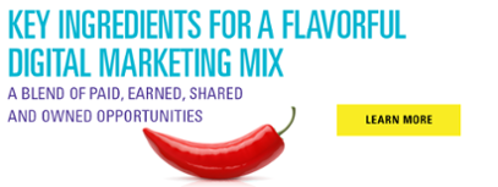 Have you ever found yourself drawn to the best-in-class solution with a proven track record and unrivaled management expertise? How about the high-quality product development with a superior customer experience? Or the state-of-the-art disruptive technology with value-add services offered at a competitive price point?
Have you ever found yourself drawn to the best-in-class solution with a proven track record and unrivaled management expertise? How about the high-quality product development with a superior customer experience? Or the state-of-the-art disruptive technology with value-add services offered at a competitive price point?
You likely have not because you probably have no idea what any of these offerings are. And if you did, you likely would struggle to find any reason to get excited about the brand.
Clearly, these examples are rife with some of the most over-used, jargony terms marketing and communications language has to offer. Most of us are probably aware of the anti-jargon rules internally and externally, even if we slip into bad habits at times. But the language is problematic for reasons that go far beyond simple word choice to issues of ambiguity and vapidity that can reflect poorly on you and entirely obscure the distinct character of your brand.
Here are some pitfalls to avoid:
1. Don’t Underestimate the Power of Clarity and Simplicity
The audience needs to understand first and foremost precisely what you do and how you do it. Don’t communicate your offering with industry lingo, hazy descriptors or unnecessarily big words.
Readers, who tend to have little patience for confusing prose, will appreciate understanding you offer “cloud-based browser software” rather than a “technology solution.”
The goal is to inform, not obscure, and complicated ideas should have adequate breathing room.
2. Wimpy Words Make for Bland Brands
Certain words are simply overused—“unique” being the time-honored frontrunner—and should be avoided entirely. But their clichéd status is only part of the problem; they also are wildly ineffective at communicating any useful information to readers. These “power” words often do nothing more than weaken your message.
Superlatives like “unrivaled” and “unparalleled” are too subjective to prove and are likely untrue anyway. “Superior” is another comparative word that is useless without a defined context. And everyone is “innovative.”
Beyond that, these words rob readers of the chance to draw their own conclusions about a product or service. They “tell” instead of “show” readers what to think as words that assign value instead of offering concrete descriptions using details that evoke clear images. An apple that is “pretty, delicious and better than all other apples” can’t compete with an apple that is “distinguished by its pinkish-red hue and has won the Best Apple Award for three consecutive years.”
Steven Pinker, a cognitive scientist and linguist at Harvard University, explains why this is true from a psychological standpoint:
“We are primates, with a third of our brains dedicated to vision, and large swaths devoted to touch, hearing, motion, and space. For us to go from ‘I think I understand’ to ‘I understand,’ we need to see the sights and feel the motions.”
3. Become a Revolutionizing Disruptor Before You Call Yourself One
Other words such as “revolutionize” or “disrupter” are simply unrealistic characterizations, and often are aspirational terms that reflect a desired state instead of a current one.
That’s not to say no one meets these standards, but unless you’ve really altered your industry’s landscape or redefined a business model à la Airbnb or Uber, better not to give readers the impression you have.
You can still paint a seductive picture of what’s to come and inspire your audience with a vision, just don’t give them reason to doubt your judgment. Overly promotional language can erode your credibility if someone suspects you’ve sensationalized your status, and may wonder what else you’ve exaggerated in your message.





Let’s Connect
Ready to build, grow, manage and protect your brand? Complete the form below to discuss how we can help.